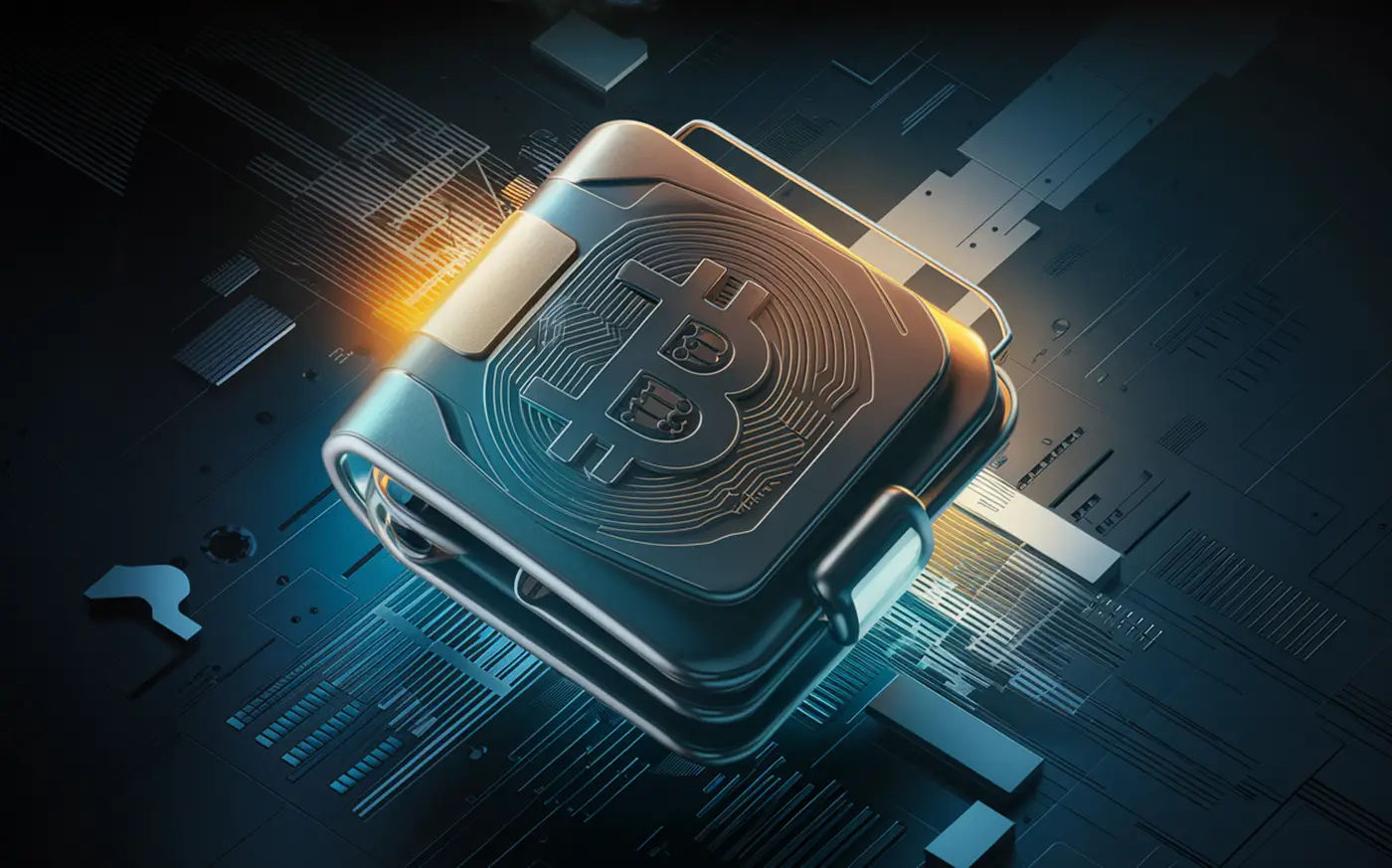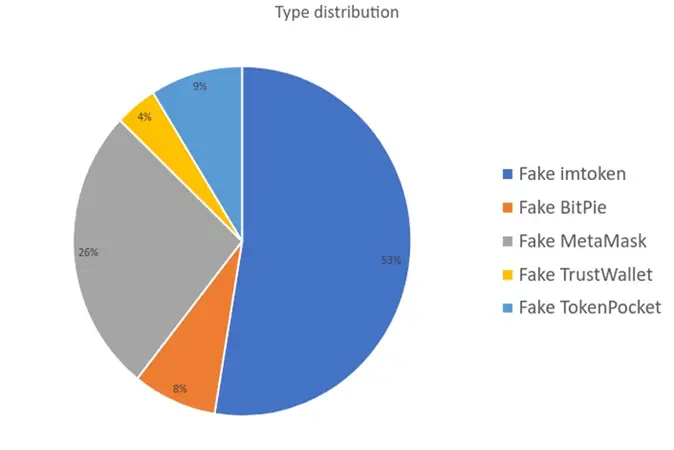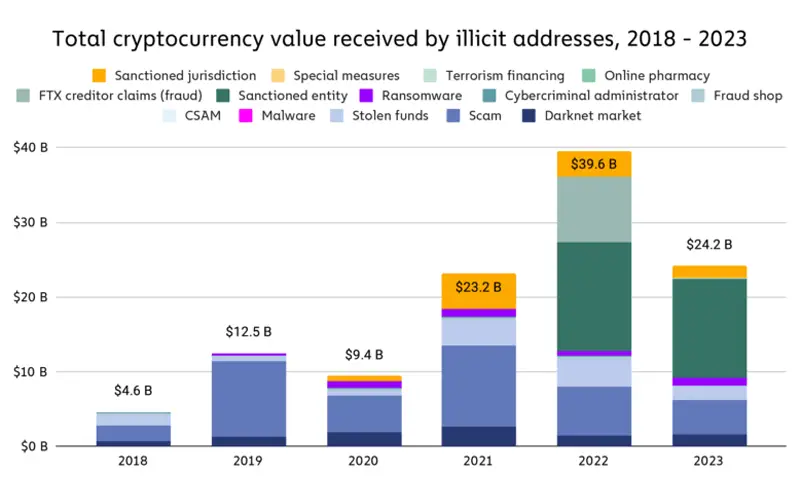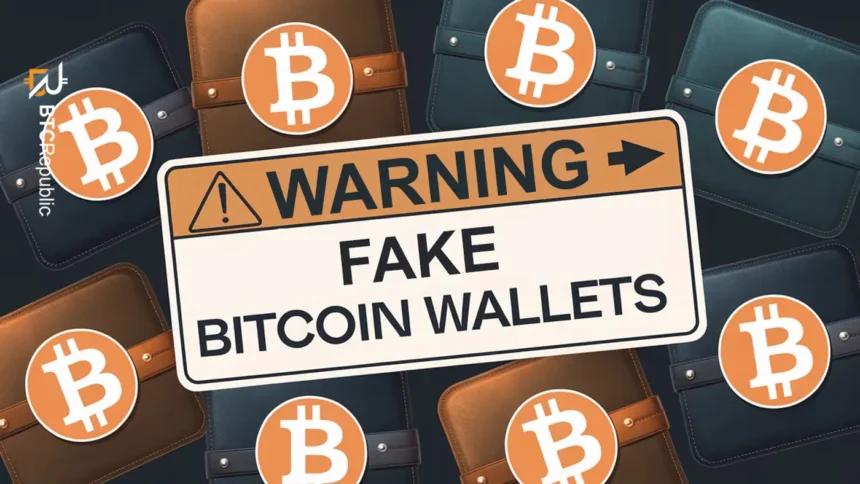Is there a fake Bitcoin wallet? There’s a lot of money in the crypto industry and fraudsters like a lot of money.
So, yes, there are fake Bitcoin wallets and other kinds of scams in the cryptocurrency industry. A newbie asking this sort of question may also not know how Bitcoin works.
It is said that knowledge is power. This guide will not only provide information on fake Bitcoin wallets but also look at what Bitcoin is, how Bitcoins work, and more.
- What Is Bitcoin And How Does It Work?
- Fake Bitcoin Wallet Scams Explained
- Examples Of Bitcoin Wallet Fraud
- Imtoken, Bitpie, MetaMask, TrustWallet, And TokenPocket Wallets
- How To Avoid A Crypto Scam
- Conduct Research And Due Diligence
- Implement Adequate Security Measures
- Use Recognized Platforms
- Follow Industry Trends
- Network With Experts
- Conclusion
- FAQs
What Is Bitcoin And How Does It Work?
A Bitcoin wallet is a medium you can use for storing, sending and receiving coins. When you get a new Bitcoin wallet, you’ll be assigned a pair of cryptographic keys – a private key and a public key.
Your private key is a unique secret code that gives only you exclusive access to your account and also proves that the account is yours. It is not meant to be shared with anybody, especially those you don’t trust.
A Public key is similar to conventional bank account numbers. It can be shared with other people, and anyone who has it can transact with it.
A public key is also known as “public address” by some but there are others who say a public address slightly differs from a public key.
Apart from a private and public key, your account will also have a seed phrase. Your seed phrase is conceptually similar to a private key because it should also be kept private and not shared publicly.
Seed phrases are used to help recover access to damaged or lost wallets.
Divulging information on either your private key and/or seed phrase can grant access to a fake Bitcoin app to steal your coins.
Fake Bitcoin Wallet Scams Explained

You may have been wondering about how fake Bitcoin wallet fraudsters operate. If so, here is a detailed breakdown of a typical scam process:
- Step 1: Scammers set their traps, for example, creating a fake crypto wallet app that can be downloaded in app stores and/or building a website that mimics an authorized wallet company. To appear original and convincing, the fraudsters may adopt domain names, user interfaces, logos, etc similar to those used by the organizations they are mimicking.
- Step 2: After setting up shop, they then leverage several promotional avenues to advertise their traps. Examples include social media and other online forums, phishing emails, and paid ads, among others. These promos often include very enticing (and sometimes very ridiculous) offers meant to attract prey as quickly as possible.
- Step 3: Any prey that is lured into any of their traps is then directed to create an account where their personal information is taken with fraudulent intent.
- Step 4: As soon as a user completes their account set-up, they are coaxed to quickly make cryptocurrency deposits into the fake wallet. These calls to action by the fraudsters are often accompanied by sweeteners such as bonuses and other motivational incentives aimed at convincing users to deposit as large amounts as they can.
- Step 5: When deposits enter the fake wallet, the fraudsters take advantage of their access to the depositors’ private keys, seed phrases and other account information to transfer the depositors’ coins to their own wallets.
- Step 6: After successfully stealing as much as they desire or if they sense danger from their prey or law enforcement, the fraudsters simply shut down their fake wallet platform and most times vanish into thin air. Victims often have little or no clues about how to trace the thieves or recover their stolen tokens.
Examples Of Bitcoin Wallet Fraud
If you follow cryptocurrency news constantly, you will have observed fraud incidents in the industry from time to time. Below are some examples involving Bitcoin wallets.
Ledger Wallet
On November 5, 2023, a crypto investigator ZachXBT warned on X about a fraudulent crypto wallet app called Ledger Live Web3.
The app tricked users by imitating the original Ledger Live wallet. Ledger Live is a user interface app through which users of hardware wallets can store and do offline transactions with their crypto assets.
According to on-chain data, the thieves succeeded in stealing nearly 16,800 BTC (around $588,000), in 38 transactions sent to one wallet address. The first incident on October 24, 2023, led to the $87,600 being stolen.
Leather Wallet
It was widely reported in March this year that a rogue app that mimicked the Leather Bitcoin wallet had been downloadable on Apple’s app store for up to four years, despite repeated warnings.
The fake Leather app conned users by creating the Leather logo, positive reviews (possibly generated through artificial intelligence), and other information that presented them as knowledgeable about crypto wallets.
One such transaction is said to have resulted in the stealing of 38,000 STX, (approximately $120,000).
Imtoken, Bitpie, MetaMask, TrustWallet, And TokenPocket Wallets
In 2022, a research team a Trend Micro found 249 fake crypto wallet apps designed to work exactly like original wallets.
Wallets targeted by the fraudsters include Imtoken, Bitpie, MetaMask, TrustWallet, and TokenPocket.

The fake app was downloaded by victims in the United States, Australia, Germany, France, Japan and New Zealand.
The researchers discovered that more than $4.3 million had been transferred from just one of the 249 fake wallets. They also observed similarities in the modus operandi of all the fake apps and websites.
According to them, the: scammers fraudulently obtain victims’ seed phrases, gain access to their wallets and transfer all the coins from the compromised accounts.

As part of their investigations, the researchers joined a Telegram group where hackers openly traded their fake crypto apps, cloned websites, backend management systems and every other thing needed to steal crypto.
The hackers claimed they could make fake versions of every major crypto wallet app in the market.
How To Avoid A Crypto Scam

Chainalysis estimates that $24.2 billion was lost to illicit activities in the crypto industry in 2023. Though this figure is a decline from the previous year, it is expected to be higher in the coming year.
What necessary measures can you take to avoid a fake Bitcoin wallet or other cryptocurrency scam?
Conduct Research And Due Diligence
Before you open an account with a Bitcoin wallet service, common sense demands that you conduct serious research and due diligence to know more about who you are dealing with.
Reputable and well-known businesses have lots of documents and other information in the public domain.
You should be concerned if the company or developers you want to select have little or no publicized information about them.
Additionally, if you are not well-versed in cryptocurrencies and their wallets, try to read up and watch videos about them as much as you can.
Implement Adequate Security Measures
Legit Bitcoin wallets come with strong security features like 2FA and frequent upgrades. You should be suspicious if the wallet lacks any or all of these features. Protect your computing devices with antivirus, VPN and other security-enhancing programs.
Create strong and unique passwords. Do not share your private key, login credentials, and seed phrase with anybody or those you don’t trust.
Always update all your apps to their latest versions. Do not reply unwanted emails, click on suspicious links, and other wallet marketing communications. They may be ploys to steal your login credentials and other personal information. Adopt safe browsing habits.
Use Recognized Platforms
Outstanding and legitimate Bitcoin wallet brands usually have several downloads and excellent customer reviews. Be cautious if you observe few downloads and negative reviews. If your budget permits, stick only with wallets from recognized industry leaders.
Follow Industry Trends
As a wallet owner or intending owner, it behoves you to have a strong understanding of the cryptocurrency industry. This will help you keep track of technological trends as they evolve and therefore acquaint you with knowledge of the most secure, convenient and cost-effective technologies to invest in.
Network With Experts
It is never a bad idea to solicit the opinion and advice of those with a high level of expertise in the industry. Networking can enhance your knowledge and ensure you do not fall victim to fake Bitcoin wallet fraud.
Conclusion
Fake Bitcoin wallets are undesirable realities in the cryptocurrency industry. Unfortunately, people’s funds continue to be stolen by fraudsters despite the best security measures.
But if you are a cautious crypto user that adopts adequate measures such as those mentioned above, then it will be difficult if not impossible for your coins to be stolen by fake Bitcoin wallet or other fraudsters.
FAQs
-
Is It Possible To Track Bitcoin Wallets?
Yes. Every Bitcoin transaction is public, trackable, and stored permanently in the Bitcoin network. The only information you can use to determine where Bitcoin was allocated and where it is sent is a Bitcoin address. A Bitcoin address is privately created by each user’s wallet.
-
Can A Bitcoin Wallet Be Blacklisted?
Yes. A blacklisted Bitcoin wallet is one that is flagged by exchanges or authorities for involvement in fraudulent or other illicit activities like theft, money laundering, or hacking. A blacklisted wallet can be banned from sending or receiving funds. Any funds in such a wallet can also be confiscated or frozen.
-
How Can A Bitcoin Wallet Scammer Be Traced?
Although some exchanges share wallet holders’ information with private investigators, most require direct police intervention before disclosing any information. Therefore, it may be necessary to ask the police to contact the affected exchange.
-
Can Money Stolen From Bitcoin Fraud Be Recovered?
Sometimes, it is possible for those who have lost money to crypto scams to recover their lost coins. However, this is usually done with the help of law enforcement authorities.










